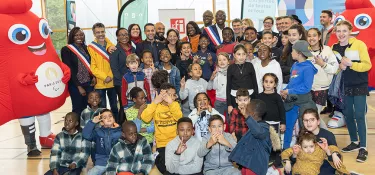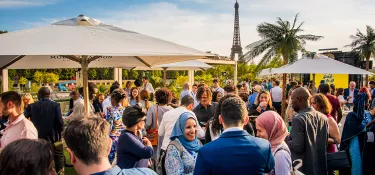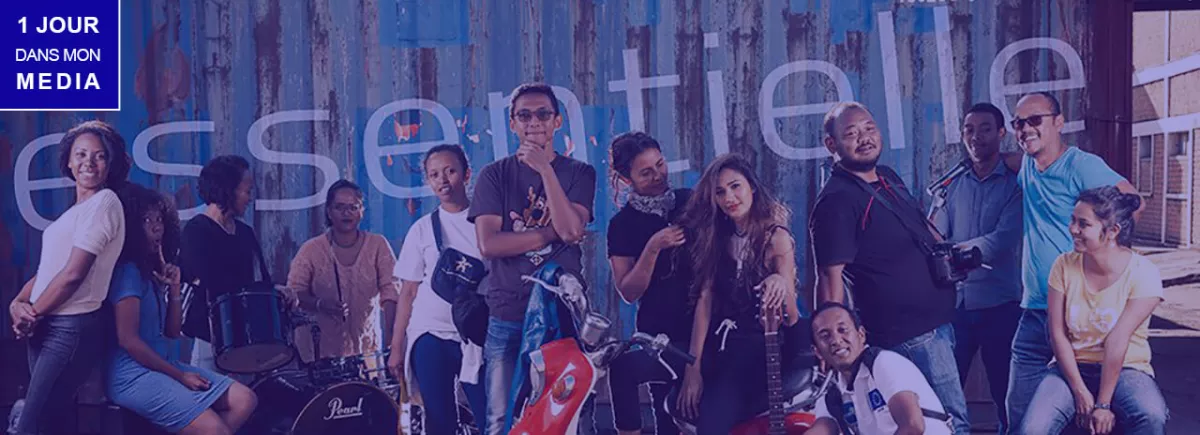
Essentielle: a touch of femininity in the Madagascan media landscape
Related project
Media 360°One day in my media organisation is a series of weekly reports illustrating the daily lives of people who work in media organisations across Africa, the Arab world and Southeast Asia, supported by CFI.
This week, we have an interview with Haingo Willie Rarivoson, editorial director of
Essentielle.
Essentielle is a women's magazine launched in September 2012. This 76-page monthly is owned by the L'Express group, which comprises four radio stations, a TV channel and five publications, including L'Express, the group's flagship title.
After working for a number of Madagascan media organisations, including the TV channel MBS, Haingo Willie Rarivoson was initially recruited as Editorial Manager before becoming Chief Editor of Essentielle.
A free and uninhibited tone
The newspaper employs six women journalists, a computer graphics designer and a photographer. Haingo Willie An increasing number of young women aged 13 to 19 are now also reading our magazine, drawn no doubt by the fashion sections. advocates a freedom of tone at odds with what can be found in the country's other media outlets: "We can claim to be making a contribution to improving the condition of women in Madagascar. We have no hesitation in tackling taboo subjects", she explains. The monthly's target audience is women aged 30 to 45.
The editorial team is based in premises specifically dedicated to the magazine – an open space in the head office of the L'Express group in Antananarivo's Ankorondrano business district. The topics covered by the magazine are selected in an editorial meeting. Each journalist then writes their article. Haingo Willie is responsible for ensuring editorial policy is adhered to and sends the documents to the editorial office. Once the articles have been approved, the graphics designer and the photographer step in to illustrate them. The texts then undergo a final revision before the mock-up stage.
The 6,500 copies are then printed in Mauritius before being sent by sea or air to Madagascar: "Printing over there is cheaper and far better quality", notes the Chief Editor. The copies are then despatched to the various distribution points. The adverts inside the magazine ensure a degree of financial independence, but no more: as Haingo Willie admits, "the monthly barely makes a profit".
Essentielle is sold for less than one euro per unit.
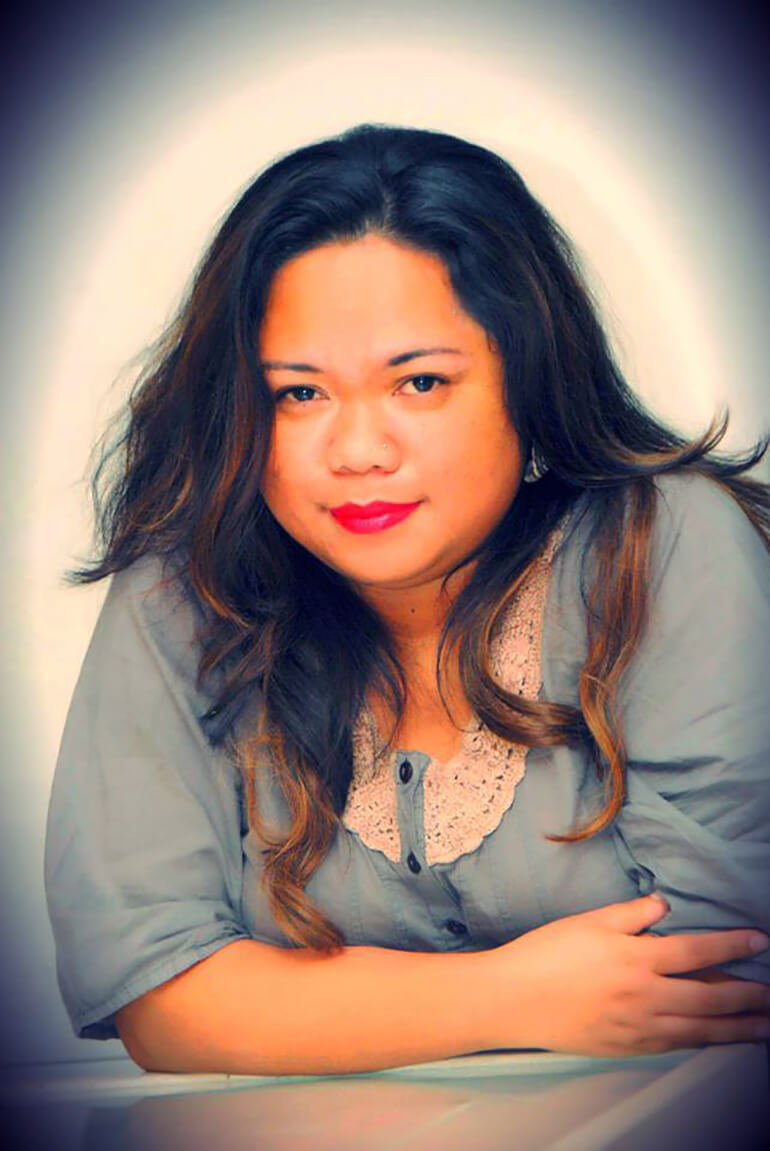
Paper: still a popular medium in Madagascar
In Madagascar, there is still a strong demand for paper: "Our magazine is printed on coated paper, which makes it pleasant to leaf through. This traditional format is still favoured by local advertisers." We are working to put in place a digital strategy.
The articles are uploaded to the website little by little, although the lack of human resources means that the process of putting them online is slow.
The magazine has a Facebook page with 7,200 followers, which it mostly uses to communicate and interact with its readers. Haingo Willie notes that CFI's Media 360 project was a great help in that respect: "Something just clicked: we realised the potential of digital, but also that we were behind the curve. For example, to begin with we didn't like Twitter at all. Then we realised the social network could be a real news source, and it's faster. Media 360 prompted us to pick up the pace and CFI's monitoring has forced us to take the transition more seriously", she explains.
In Madagascar, media proprietors are either politicians or economic operators
One of the main features of the Madagascan media landscape is the significant number of politicians and businessmen at the head of media groups. L'Express is no exception: : "Our CEO is involved in politics but he knows what can damage the credibility of a media outlet. So on the whole he tends to keep his distance from how we process information", reports Haingo Willie. Because she works for a women's media outlet, the main difficulty she faces is not being seen as a “real journalist": "For many people, it's just all about girls and nail varnish. There are many prejudices and things are going to have to change", she adds, in a determined tone.
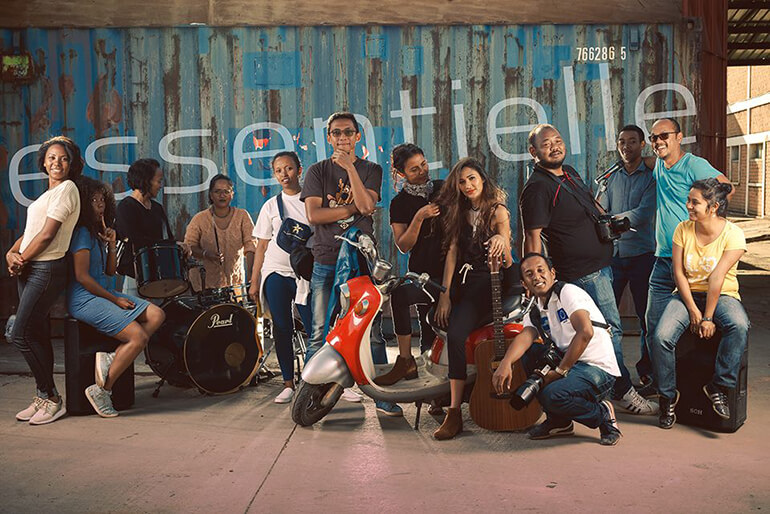
Generally speaking, working as a journalist in Madagascar is made difficult by the paucity or unavailability of information, not to mention “the threats and reprisals". As for the Madagascan public, they tend to choose their media based on the kind of information they want: "If they want to find out about the opposition, they'll read the public media outlets, and if they're looking for news about how the country is being managed, they'll turn to the private outlets."
As well as continuing its digital transition, Essentielle wants to contribute to raising standards in the journalism profession in Madagascar: "We want to diversify the media market and encourage freedom of expression", she concludes.
